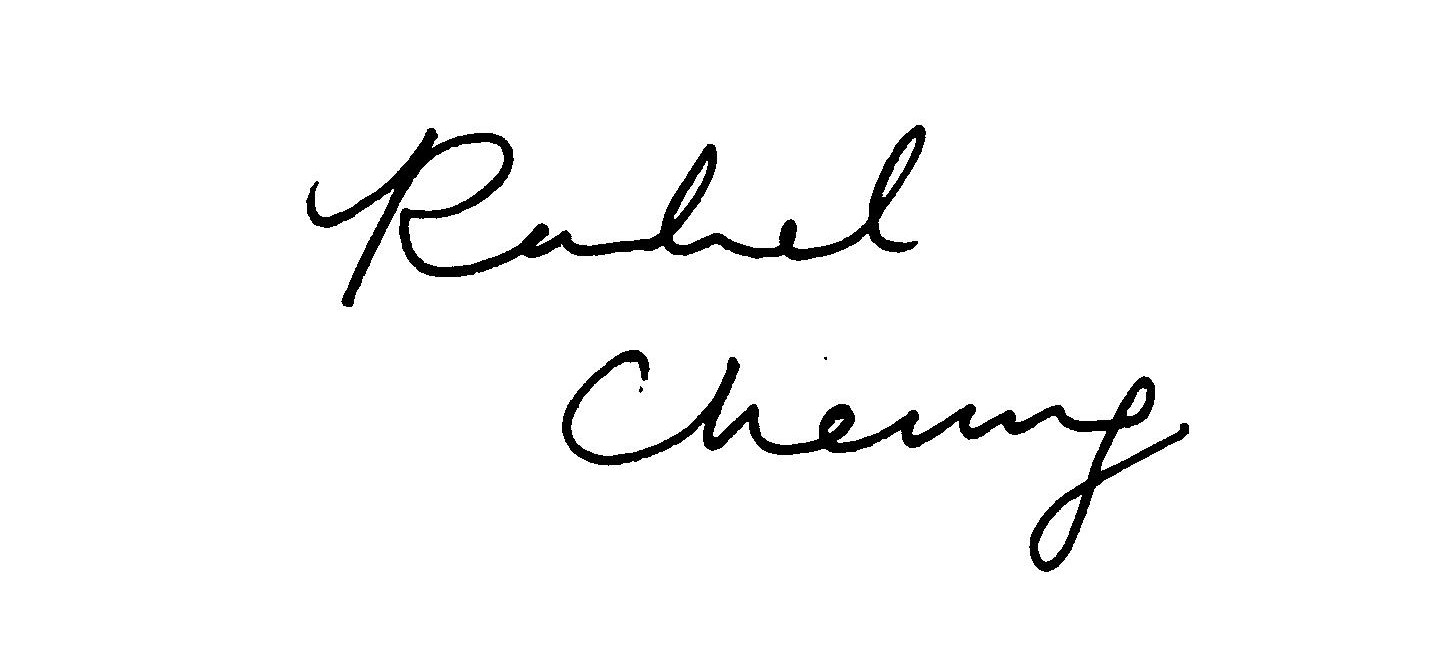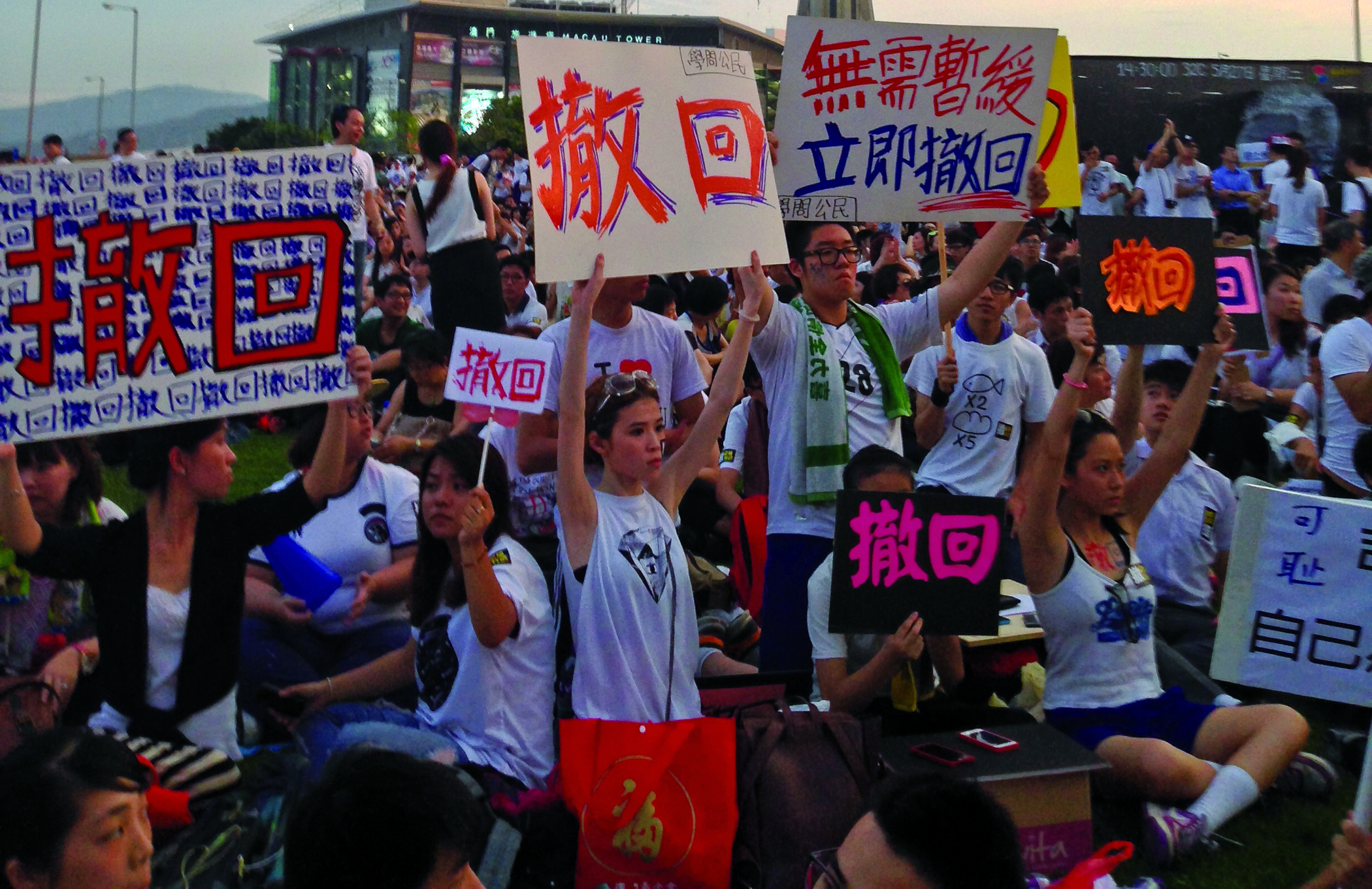Cheung Chor-yung, senior lecturer of political science at City University of Hong Kong, represents the moderate scholarly view on Hong Kong’s democratic development. “Between Hong Kong and China there is a huge power disparity” Cheung says, adding he feels really let down by Beijing’s unyielding attitude. “Our danger is when we confront Beijing, it’s hard to turn back.”
He fears if Hong Kong people fight recklessly with the ruling party, Beijing will quicken the pace of trampling on the “one country two systems” policy, thereby ruling out all the possibilities for democratic reform.
Back in August, Cheung was one of a group of 18 scholars who proposed a moderate alternative election package, which suggested more flexibility under the framework of the Basic Law without challenging Beijing’s bottom line of preserving the nominating committee. Beijing gave the proposal the cold shoulder, as it did to other progressive frameworks from the pro-democracy camp that suggested various degrees of nomination by ordinary voters.
However disappointed they may be, the veteran advocate for democracy urges Hong Kong people not to be disheartened and to fight on. “Winning democracy from an authoritarian regime is never easy,” he says. “We must try, until we have reached the last resort. It will be difficult. And we may never win the game.”

“The only way is to try to outlast them by counting on young people… Can young people nowadays be ruled like in the past? It simply doesn’t work,” Cheung says. “Sacrifice in glory is easy, yet fighting on is hard … There must be ups and downs on the road to democracy. All that matters is how determined we are,” he says. To strive for democracy in the long run, Cheung stresses Hong Kong people must defend our strong civil society and our freedoms, passing the torch to the next generation who will continue the fight.
Felix Tsang Ho-ching, an 18-year-old creative media student of Hong Kong Design Institute was on the frontline throughout the whole occupy movement. From Admiralty to Mong Kok, and then on to Causeway Bay, he stood firm in the occupied zones even when few protesters stayed and when fear of clearance by police was running high.
Months before the Occupy movement started, Tsang, like many of his friends hesitated about whether to support it actively and bear the legal consequences. “Yet when Beijing closed the door on genuine democracy, I realised I must stand out. It’s not my choice. It’s the choice of an epoch,” he says.
In the evening of September 28, when police dispersed the crowds in Admiralty by firing tear gas, Tsang was loading supplies for the protest near the Academy for Performing Arts in Wan Chai, a 10-minute walk away from the confrontation. When he watched a live broadcast of the police clearance, he could not believe such disturbing scenes could take place in Hong Kong. “It’s like watching a live film of the Tiananmen Square protest. There are people screaming, smoke and dispersing crowds … Even if I had been there, I could have done nothing. I feel really helpless. ” he says. However, Tsang was not bowed by the police violence and possible arrests. On the contrary, the upbeat mood of protesters and their unity emboldened him throughout the whole protest.
“When I see so many people occupying together, thousands of people stayed behind outside government headquarters, I have no fear, even if they arrest me… I may break the law, but I do nothing wrong,” he says firmly.
There must come a time when the occupy protesters will leave the battlefield and resume their routine lives, yet Tsang is confident the movement has planted a seed in everyone’s heart, and the battle will never end. At least, the young people will fight on. “The rulers may be powerful, but we need not back down. If we give up, there will be no hope,” he says.
Edited by Cindy Ng









































